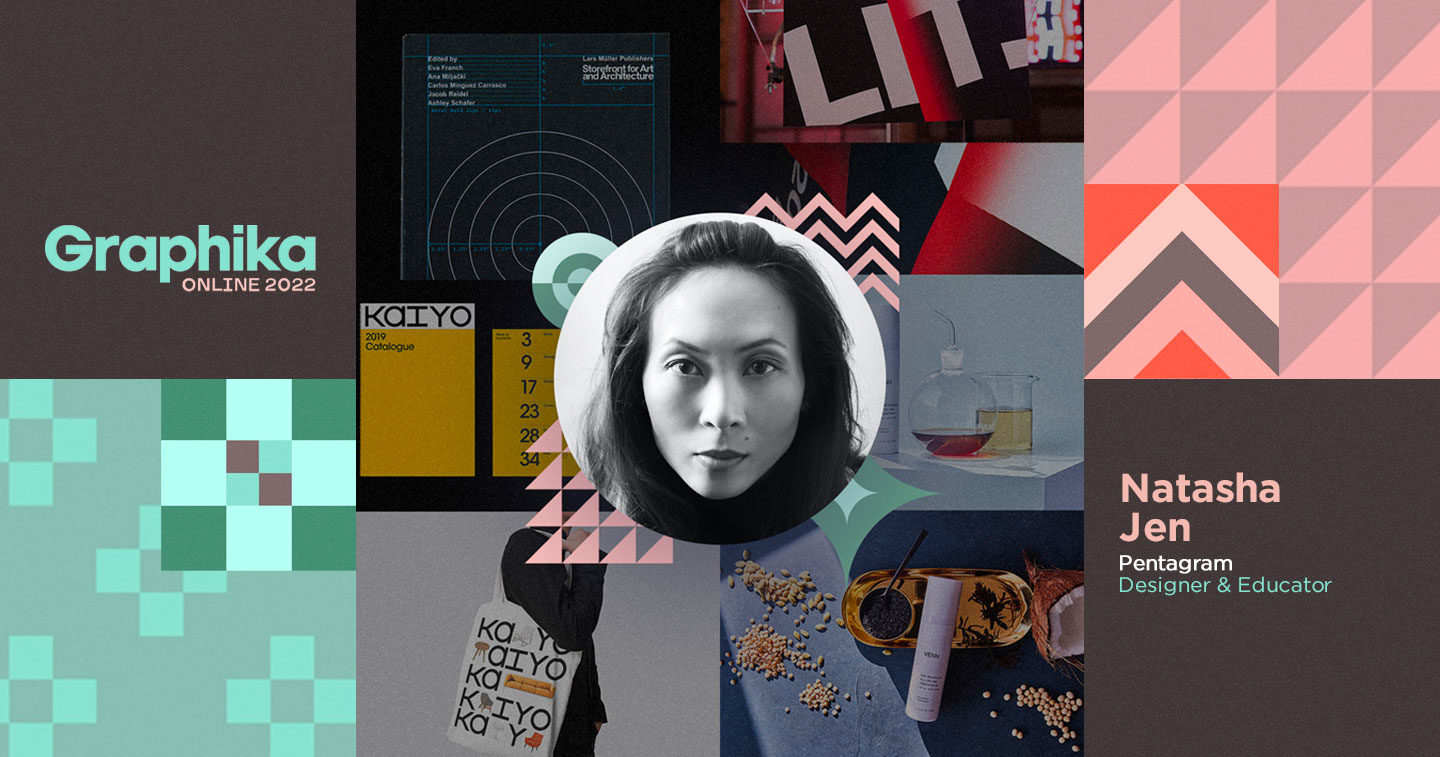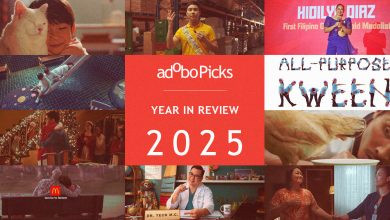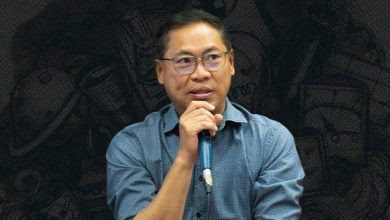MANILA, PHILIPPINES — This year, Graphika Online 2022, one of Asia’s most influential design conferences, brought creativity and inspiration to the fore once again. Graphika has acted as an arena for the most talented and imaginative creative forces in Asia and around the world for the past 17 years.
Graphika Online 2022 hands the microphone to some of the most creative leaders in the industry — such as Pentagram’s Natasha Jen.
Born in Taipei, Taiwan and studied graphic design at School of Visual Arts in New York City, Jen has worked as a senior graphic designer on fashion and brand identity projects at Base Studio, as an art director at 2×4 Inc. leading large-scale branding, and Creative Director at Stone Yamashita Partners. Before she joined Pentagram as one of their partners in 2012, she established her own studio Njenworks in 2010.
During Graphika Online 2022, Jen tackled three difficult questions that highlighted her three big takeaways for the year, thanks to some of the notable projects her team has worked on through the pandemic.
Why are we cruel?
This is the question Natasha Jen encountered as they were approached by NEAVS, an animal rights organization with a mission to end lab animal testing. Jen admits that she was never aware of the severity of the lab animal testing until the project started. “How to deal with this documentary, photography had been a design challenge for us because we knew, first of all, we couldn’t avoid it. We have to portray it in a kind of more understandable way,” Natasha Jen said.
“Rise for Animals” is the name Natasha Jen and her team came up with to replace “NEAVS” which stood for New England Anti-Vivisection Society. ‘“[The name “Rise for Animals” is straight] to the point. That’s what we do and that’s what they should do,” Jen said. “Changing a name for an organization was a really big thing. To come out with a swing, with a really strong, impactful identity was something we felt really proud of.”
Working with a project that affects one of the vital components to support and continue the web of activity in our ecosystem, Jen ends with a strong statement that “we should end animal cruelty in our lifetime.”
Why do they hate us?
As an Asian-American herself, Natasha delivers facts about the tremendous increase in Asian hate crime in the United States of America and in New York City where she currently works. According to the data she presented from an analysis of official preliminary data by the Center for the Study of Hate & Extremism (CSHE) at California State University, San Bernardino, 164% increase in Asian hate crimes was seen in the USA since COVID surge while an increase of 361% was seen in New York City in 2020-2021 based on the reports from the New York Police Department (NYPD).
With only less than 0.2% of philanthropic organizations that cater to support Asian community in the US, Jen admits the mind-boggling fact that the Asian-American community is one of the most neglected communities in the USA.
As they worked on a logo project with The Asian American Foundation (TAAF), the first largest national organization in the USA that supports all efforts of the Asian-American community, Jen and her team looked into some of the existing local Asian-American community logos that uses pictographic symbols and found that the existing logos are represented by the Asian community they are representing and the mission they embody.
Jen and her team also looked into the acronyms and typographic elements of the Asian-American community and realized that people tend to resort to typographic symbols as a representation but don’t know how to deal with it. With this project with TAAF, they wanted to represent the entirety of the Asian community. Asian herself, Jen was aware of how diverse the Asian languages are in terms of the writing system and saw the opportunity to use its calligraphic quality into creating a typographic logo for TAAF.
They were able to incorporate different calligraphic qualities of the diverse writing system of Asians in the logo which represented the entirety of the Asian-American community. Through this project, Jen realized that the battle to fight against discrimination is still a long road but as an Asian herself and for the community, she said “we will keep fighting.”
Why can’t we have Covid-19 vaccines sooner?
When the coronavirus outbreak happened to the whole world, one of the problems we encountered was distribution hurdles. About a year later, few vaccine manufacturers were able to develop anti-Covid-19 vaccines but required a certain temperature to preserve their effectiveness.
With the occurrence of the obvious problem of a few manufacturing companies, Resilience, the world’s most advanced biopharmaceutical manufacturing ecosystem has reached out to help them in creating a better identity and logo.
Jen shares that the company wanted to retain the logo and explains that the essence of the original logo is to look like breaking outside the box. “The ambition is huge but then the design… we felt it needed something that felt a lot more technological,” Jen said.
With another design challenge to incorporate abstract scientific systems such as cell therapy, gene therapy, vaccines, nucleic acids, and biologics, they looked back into the logo and defined it. “This angle [59 degree] became the mathematical grid system for us to utilize. We built out a grid, it’s actually a blueprint… and it allowed us to create pictographs… that represent different research areas of this company,” Natasha Jen said. “It also allowed us to build a dynamic graphic system.”
As they worked into this project with Resilience, Jen actually realized that, helping the company to come out to the world with a better identity, they were able to help them to make a difference and save people’s lives, and as humans, Jen said “we can change how medicines are made and save people’s lives.”
Follow Natasha Jen on Twitter and Instagram, and check out her works on Behance. You can also visit Pentagram’s website to know more.
adobo magazine is an official media partner of Graphika Online 2022.








